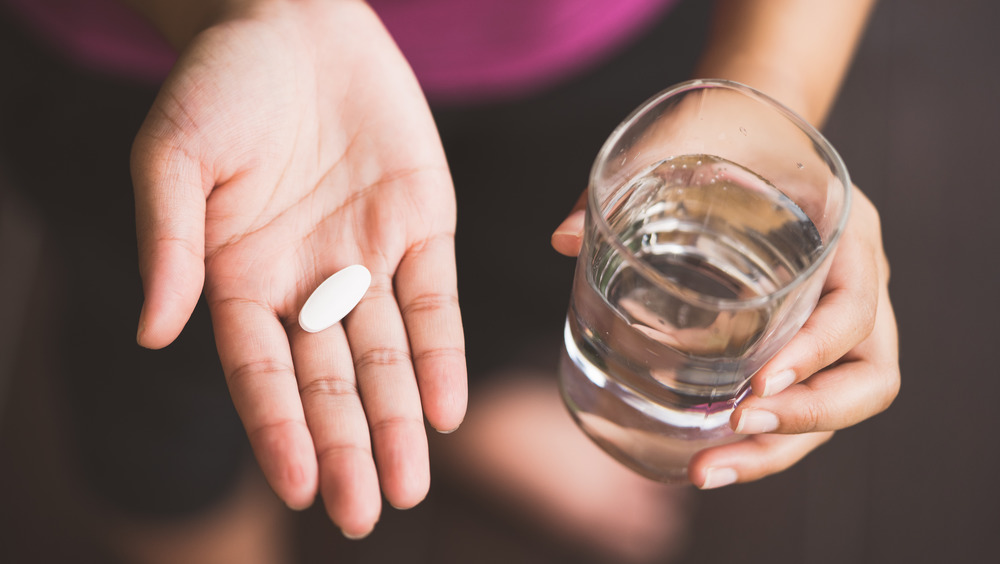Do Apple Cider Vinegar Pills Work?
Apple cider vinegar has generated a lot of buzz over the last few years. It's been used for centuries as a home remedy to treat everything from warts, skin infections, arthritis, morning sickness, yeast infections, cholesterol levels, diabetes, and much more. While many of its famed benefits have become popular through word of mouth, there is some solid scientific evidence to support several impressive claims.
Apple cider vinegar is taken for weight loss possibly more than for any other reason, and there is some credible research backing the belief that it actually works. One Japanese study, published in 2009 in the journal, Bioscience, Biotechnology, and Biochemistry, in which obese participants drank either zero, 15, or 30 ml of vinegar daily found that, over a 12-week period, both vinegar-drinking groups lost more weight and body fat than the control group, and also lowered blood triglyceride levels.
Consuming apple cider vinegar has also been shown, through numerous studies, to lower blood sugar levels, and to reduce cholesterol levels (via Healthline). As for its many other claims to fame, there's been very little research devoted to exploring them.
The research done thus far focuses almost entirely on apple cider vinegar in its liquid form. But what about ACV pills? Can those who don't care for the harsh taste and smell of liquid vinegar get all the same benefits from dehydrated ACV?
Do ACV pills work the same as the liquid?
Most of the research on apple cider vinegar has only studied the effects of consuming it in its liquid form. Since dietary supplements are not regulated by the FDA, it's impossible to know exactly what you're getting in a pill, in terms of either potency or added ingredients. In fact, one study which evaluated eight different brands of ACV pills, found considerable inconsistency and inaccuracy in labeling. Vanessa Rissetto, RD, a New Jersey-based nutritionist, said, "Supplements aren't regulated by the FDA, so you never actually know what you're getting in them" (via Women's Health Magazine). Also, a large, 16 oz bottle of organic apple vinegar runs around $4, while a bottle of ACV pills will cost anywhere from $10 to $20 or more, depending on the brand.
Consuming a tablespoon or two of apple cider vinegar daily is generally considered to be safe for most people, and could help with a number of conditions. If you're pregnant however, apple cider vinegar is not usually pasteurized, so you'll want to avoid consuming it in any form.
If you can't stand the taste and really want to opt for pills though, make sure to choose a brand that has been tested by a third party and displays a logo (like USP, for United States Pharmacopeia).


